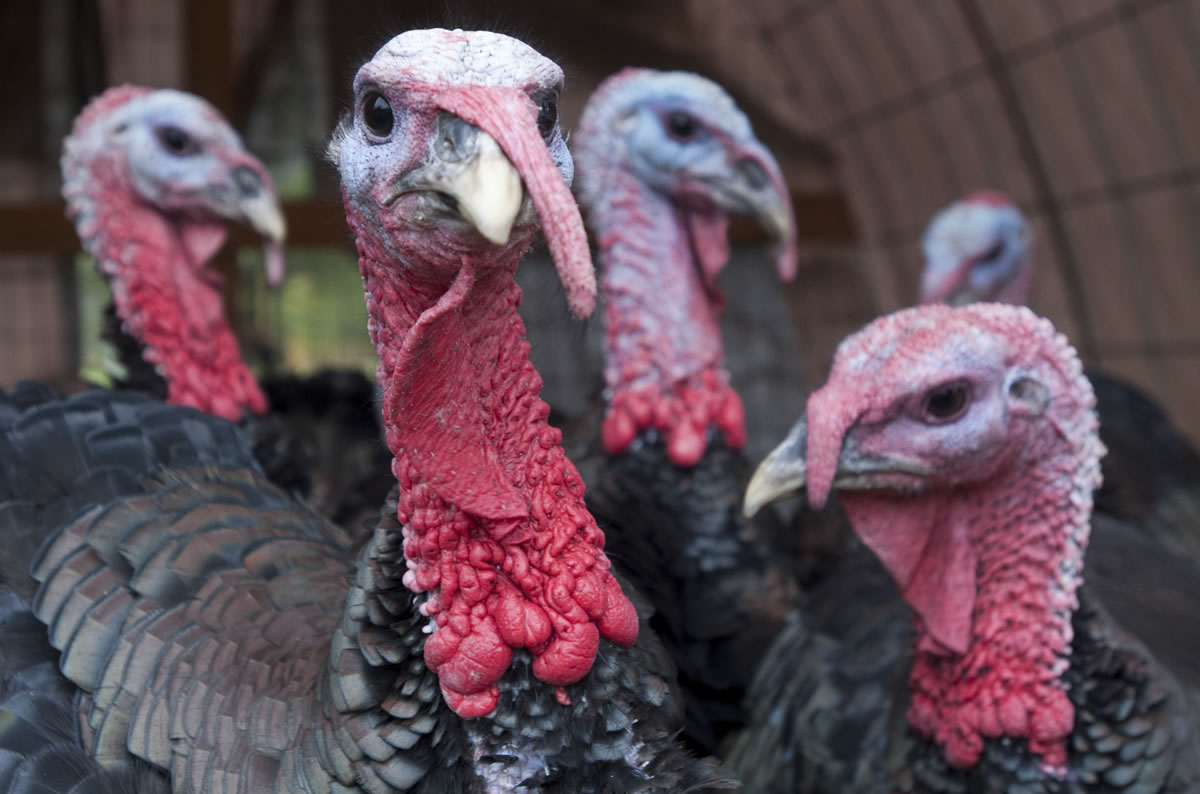There are a handful of farmers in Clark County offering locally raised turkeys, and at 20, Erik Halvorson of Halvorson Farms north of Battle Ground thinks he’s probably the youngest.
Halvorson’s family moved to the Heisson area in 2012, when he was just finishing high school. Since then, Halvorson has built a small farming business on his family’s 5 acres.
He started by raising chickens for eggs and rabbits for meat. Then he moved on to vegetables and growing a larger garden, met a few mentors and later moved on to pigs and pasture-raised turkeys.
“I don’t know what really started it,” he said. “It kinda just all really happened.”
Starting a small farm wasn’t part of the plan when his family moved to Clark County from Maple Valley. Coming from the suburbs, he’s about a surprised as anyone else that he got into farming.
“Really, I was like a little computer child, video games,” he said, stopping to laugh. “It’s different.”
His turkeys have been fairly popular. Customers had reserved all 14 of Halvorson’s turkeys weeks before Thanksgiving, he said. Many of his customers keep returning, which is promising.
“The market’s there,” he said. “People are wanting fresh meat, versus meat that was frozen and then shipped.”
He started this season with 20 turkeys — Halvorson has them shipped as chicks then raises them — and is down to 14. They’re not very hardy, he said. A raccoon or other critter got a hold of and injured one bird not long ago, but Halvorson said he was able to salvage some of the breast meat for a family meal.
Family support
His parents are supportive and help out sometimes, he said, adding it probably doesn’t hurt that they get a lot of fresh food out of the deal. Most of Halvorson’s extended family lives in the Portland area, and have come up to his place for the holiday and to enjoy his turkeys.
Guiding your own family’s Thanksgiving meal entree, from the farm to the table, is a special treat, he said.
“It’s so great. It’s like a pride thing,” he said. “It’s like, we’re eating a home-grown turkey, his name was Tom.”
Halvorson has been slowly working toward a business degree, splitting time between Clark College and Washington State University Vancouver. He also works as a CPR instructor with Clark County Fire District 5, at the Northwest Regional Training Center, but measuring by income, he said the farm is his main job.
“It’s a lot of capital out, and you have to wait for your money to come back in,” he said.
That’s why he has cut back on eggs and turkeys. Next to pork, his marquee product at the moment, the return wasn’t worth the effort.
“Last year I raised 30 turkeys. This year I scaled back,” he said. “The labor is, like, ridiculous.”
It helps that his overhead is fairly low. He said he could have almost built a new well with the water costs he incurred thanks to this year’s drought, but he lives with his parents, making tuition his primary expense.
He sells the turkeys for $5.99 per pound, which usually comes to about $100 per bird.
His farm has a U-pick strawberry patch where guests pay by weight, and it shares about a half-acre with a vegetable crop he sells at local farmers markets and to a couple of restaurants in Battle Ground. Thanks to a small grant from the Department of Agriculture, he plans on adding a small greenhouse to the property.
He’d like to keep farming as long as he can, even if it means going into urban farming should he move.
“I like the lifestyle as far as knowing where your food comes from, and I like to be able to do that for my customers so they can come out, see what’s going on,” he said. “They know where their food’s coming from, so I think that’s pretty special.”




